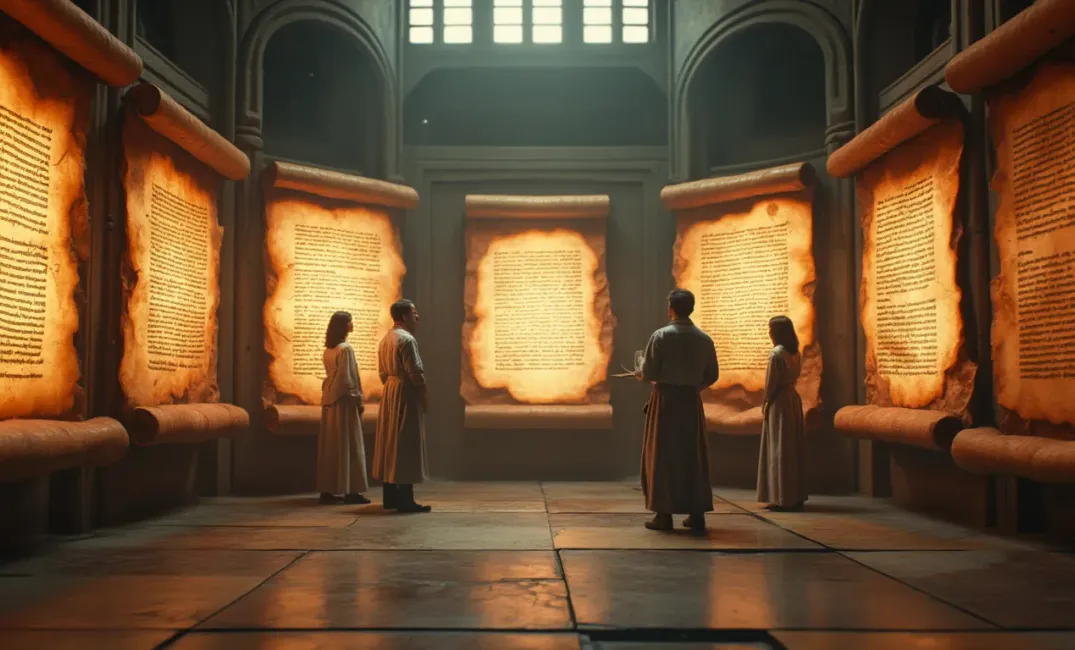Introduction: A Timeless Endeavor
"History is a guide to navigation in perilous times." — David McCullough
As humanity voyages beyond the stars, preserving history becomes indispensable to understanding the human experience and providing a foundation for future generations. The endeavor of documenting the past—through moments of brilliance and trials of darkness—acts as both a mirror and a map, guiding decisions, understanding cultural identities, and imparting wisdom accrued over millennia. This entry explores the importance of historical preservation, detailing methods, challenges, and its role in shaping the present and future.
The Role of History: Educating and Enlightening
Foundations of Learning and Advice
- Chronicles of Civilization: History captures the rise and fall of civilizations, narrating tales of triumph, disaster, and resilience. These chronicles illustrate advancements in governance, philosophy, technology, and social organization.
- Moral and Ethical Insights: By examining historical decisions, individuals enhance decision-making capabilities, discerning the ramifications of ethical and moral choices, fostering citizenship consciousness among societies.
Cultural Identity and Preservation
- Cultural Tapestries: History memorializes cultural accomplishments, rituals, languages, and heritage. It strengthens identity and ensures continuity across diverse peoples, preserving society’s rich mosaic of traditions.
- Adaptive Narratives: Cultures are dynamic; history records adaptation within changing environments and circumstances—essential for dialogue, learning, and fostering empathy across distinct cultures.
Methods of Preservation: Custodians of Memory
Written Records and Manuscripts
- Archival Institutions: Libraries and museums stand as repositories guarding humanity’s collective knowledge, offering access to ancient scripts, documents, and artifacts—preserving context for future inquiry.
- Digital Conservation: Technology consolidates historical resources, converting physical copies into digital formats, safeguarding against physical degradation and providing access to diverse audiences without degradation of quality.
Oral History and Storytelling
- Communal Narratives: Oral history captures memories through storytelling, audio recordings, and interviews, illuminating personal perspectives otherwise omitted from mainstream narratives.
- Eclectic Memorialization: Preserving oral stories requires a culturally sensitive approach, respecting unique rituals and linguistics. Collaborations enhance inclusive historical narratives, vital for comprehensive preservation.
Challenges in Preservation: Navigating Complexities
Decay and Destruction
- Time’s Relentless March: Physical artifacts are continually subjected to decay and entropy. Effective conservation requires extensive restoration efforts, funding, and capacity to preserve intrinsic historical value.
- Conflict and Cultural Erosion: Wars, political instability, and climate-related dangers lead to the destruction of invaluable cultural sites and collections. Collaborative international efforts aim to secure intangible cultural heritage during crises.
Bias and Representation
- Power Dynamics: History often reflects the views of the dominant, marginalized voices obscured by patterns of discrimination and hegemony. Expanding narratives to heighten inclusivity ensures diverse perspectives are respected and incorporated.
- Verification Challenges: Authenticating historical accuracy requires diligence. Systematic reviews and peer collaboration enhance factual integrity, protecting against disinformation and absurd myths masquerading as truth.
The Ethical Dimensions of Preserving History
Equitable Access to Knowledge
- Digital Accessibility: Technology democratizes historical access, expanding global participation in humanity’s collective memory. Ensuring equitable distribution of historical resources encourages diverse study and inquiry.
- Cultural Ownership and Consent: Sensitive matters arise in determining ownership of cultural artifacts. Collaborative frameworks need to uphold principles of consent and respect, particularly when repatriation or ancestral claims arise.
Balancing Innovation with Tradition
- Technological Advancements: Emerging digital platforms facilitate innovative conservation methods, such as 3D scanning and virtual reality, offering vast potential for enabling reconstructions and interactive historical engagement.
- Sustaining Oral Histories: Embracing oral methodologies within scientific analysis requires frameworks for ensuring kin-based storytelling aligns with technological preservation efforts without compromising sacred essence.
History in the Making: Shaping Future Narratives
Documenting the Present for Future Reflection
- Dynamic Historical Records: Today’s unprecedented digital integration provides dynamic documentation of everyday life, ensuring contemporaneous societal records rival traditional narratives documenting significant events.
- Current Experiences as History: Recording everyday narrations enrichens historical discourse. It emphasizes continuity and roots future generations in collective memories fostering communal bonds and unified aspirations.
Visionary Perspectives and Hope
- Innovating Historical Engagement: Education thrives when historical engagement inspires curiosity and critical thinking. Initiatives connecting historical inquiry with futuristic innovation cultivate a roadmap powered by collective wisdom.
- Aspiring to Balanced Narratives: By acknowledging history as an inclusive, fluid narrative, humanity bestows the gift of plural perspectives. This all-encompassing journal supports community empowerment and cross-cultural affinity.
Conclusion: Stewardship of Human Legacy
"The past is never dead. It’s not even past." — William Faulkner
The guardianship of historical preservation serves as a bridge, connecting generations and transcending the fleeting nature of moments aboard this cosmic vessel. Whether through ancient manuscripts or digital streams, history weaves humanity’s singular narrative—a narrative replete with hopes, lessons, and hardships shared across time and space.
Embracing this responsibility offers insight, identity, and inspiration—a powerful reminder of humanity’s aspirations to transcend. As stewards of this legacy, we remain vigilant in our commitment to preserve, impart, and cherish this timeless gift to bequeath a luminous future for all. Through our unified archive, humanity’s essence persists—an unbroken thread spanning the vastness of the cosmos.
ORAL HISTORY, DIGITAL CONSERVATION, ETHICS, HERITAGE, CULTURE, ARCHIVES, FUTURE GENERATIONS, HISTORY, PRESERVATION, IDENTITY

